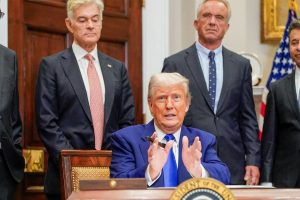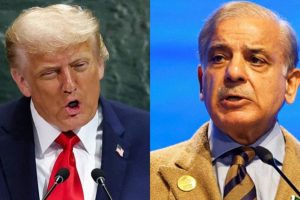Tesla CEO Elon Musk has launched a sharp attack on former US President Donald Trump’s legislative agenda, calling a newly passed Congressional spending bill a “disgusting abomination” in a flurry of posts on social media platform X.
Musk, who recently stepped down from his role as a “special government employee” with the Department of Government Efficiency, lashed out at the House-passed “One Big Beautiful Bill Act” on Tuesday, criticising its sweeping expenditures.
“This massive, outrageous, pork-filled Congressional spending bill is a disgusting abomination. Shame on those who voted for it: you know you did wrong,” Musk posted. He later warned that the bill would “massively increase the already gigantic budget deficit to USD 2.5 trillion,” and accused Congress of “making America bankrupt.”
The legislation, backed strongly by Trump, extends the 2017 tax cuts, while boosting military and border security spending. However, it also implements cuts to Medicaid, food assistance, and other social welfare programs—a point of contention among critics.
According to estimates by the Congressional Budget Office, the bill would add approximately USD 3.8 trillion to the federal debt—already at USD 36.2 trillion—over the next decade.
Despite growing criticism, including from Musk, Trump continues to lobby for the bill, calling it an “unbelievable bill” that “cuts your deficits,” while expressing a desire for even larger tax reductions.
When asked about Musk’s scathing remarks, White House Press Secretary Karoline Leavitt brushed them aside: “The president already knows where Elon Musk stood on this bill. It doesn’t change the president’s opinion. This is one big, beautiful bill, and he’s sticking to it.”
Musk had earlier expressed dissatisfaction with the package due to its fiscal impact and its implications for government efficiency. His public departure from the Trump administration signals growing tensions between the billionaire tech mogul and Trump’s policy direction, particularly over financial governance and long-term economic sustainability.





